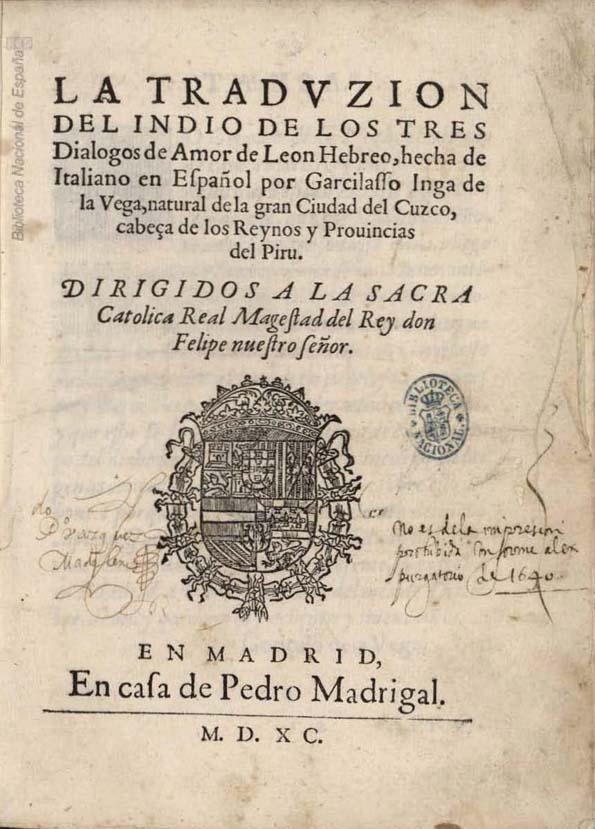
Libraries
Libraries
The translation of the Indian of the three Love dialogues of León Hebreo; from Italian to Spanish by Garcilasso Inga de la Vega
The only translation made by the Inca Garcilaso de la Vega was Dialoghi d’amore (1535), from the Jew Portuguese writer Judah Abravanel, known as León Hebreo. The importance of the Spanish version of this work is not only because of the influence that León Hebreo had in the Comentarios reales of the Inca, but it is one of the most beautiful translations of the period of this book in which Neoplatonism, Kabbalah, Mysticism Arabic and astrology converge in an harmonius concordance. In the Inventory of goods of the Inca we find one León Hebreo in folio 522v, and another León Hebreo en francés in folio 524v. These volumes, show the interest that the Inca had to achieve his translation, as noted by various scholars.
About the author, J. Nelso Novoa has written the following:
“Los Diálogos de amor de Yehudah Abarbanel, o León Hebreo (¿1460-1521?), como fue conocido por sus lectores cristianos del siglo XVI y por la posteridad, son una obra singular, espejo fiel de su autor, hijo del último gran exegeta y filósofo de la tradición sefardí Isaac Abarbanel (1437-1508), criado en Lisboa a finales del siglo xv. Yehudah estuvo en contacto con la cultura del humanismo ibérico y renacentista, por lo que los Diálogos de amor son un punto de encuentro entre el pensamiento filosófico sefardí elaborado durante siglos en la Península Ibérica y la cultura filosófica del Renacimiento italiano.” (p. 103-104)
Prof. Martina Vinatea is the author of a critical edition of the Epístola de Amarilis a Belardo. (Amarilis is a Peruvian writer of the Viceroyalty times). Vinatea, who sustains that Amarilis read the Inca´s translation, studies the relationship between Amarilis’ epistle and the Inca’s translation of Diálogos de amor. In her accomplished edition, the scholar also gives account of the importance of book trade, as well as the creation of early American libraries. Moreover, the Inca’s translation is part of the digital library of our collection.

